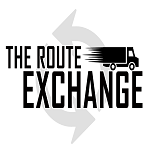Delivery Routes for Sale
Delivery routes are often referred to by a number of different terms. Independent route, distribution route, independent operator (IO or IBO) route, sales route, bread route, chip route, cookie route, and the list goes on. The goal of this page is to explain what these routes are and how they operate. Owning a delivery route can be very profitable and provide a great lifestyle for its owner as well.
What Types of Routes are there?
Different types of delivery routes are available in different parts of the country. Primarily you will find the following types of routes:
- Bread routes
- Snack routes (chips, pretzels, tortillas)
- Cookie routes
- FedEx Ground routes
- ATM routes
- Vending machine routes
How do the Routes Work?
Typically the owner of the delivery route is referred to as an independent operator. The owner has exclusive access to a designated territory and is responsible for the sales inside of that territory. Sales can be increased when the owner adds new accounts or improves the performance of already established accounts through the sales process. Personal experience has shown that most routes have a substantial amount of untapped potential. A good sales strategy, such as building relationships with managers/co-managers and actively selling displays for promotional items, can quickly add significant sales volume to a route. For food product distribution the owner purchases wholesale priced goods from a supplier such as Bimbo Bakeries, Snyder’s-Lance or Pepperidge Farm. They then deliver the products to their accounts.
What is the Typical Route Schedule?
Some routes such as ATM or vending routes might have very flexible schedules while FedEx routes have more structured schedules. Grocery type routes often require early morning hours but days that are finished just as early. My route schedule has a typical start time of 5am and I am almost always home by 11am. However, the schedules do vary greatly from route to route and it is best to check with the current route owner before assuming anything in regards to weekly hours/schedule.
How do Route Owners Get Paid?
The purchase agreement for the route will detail the owner’s commission percentage for the products being sold. This percentage can range anywhere from 10-25%. Here is an example to better illustrate the weekly payment process:
- Owner spends $10,000 on product at the supplier’s warehouse
- Owner delivers/sells the product to his accounts at a cost of $12,000 throughout the week
- Supplier collects the $12,000 from the accounts
- Supplier issues a $2,000 payment to the Owner
The example above assumes that all of the accounts are on credit and that there are no cash sales. Some routes do have cash accounts and in that scenario the owner receives payment directly from their account.
What is the Relationship Between Owner and Supplier?
While the route owner is an independent operator and runs the business as they see fit, the companies supplying the goods will often provide support on the route. Most companies have district managers and others that will help facilitate the sales process in your territory. These individuals can help manage store relationships inside your territory, sell displays into your accounts, seek out additional accounts, etc. The supplier and owner often work in a partnership of sorts since increasing sales is beneficial for both the independent operator and the supplying company.
How Do You Buy or Sell a Route?
Since routes are independently owned they can be purchased or sold between individuals. These routes are assets since they have a legitimate business resale value. Route values are determined based on a multiplier which is based on market demand. The multipliers are dependent on the type of route, the supplying company, the location and the weekly sales average. For example, routes in New York City will sell for a much different multiplier than routes located in a rural community. Similarly, routes with a sales average of $10,000 per week will likely sell at a higher multiplier than a route averaging $5,000 per week.
The route sales process can be complicated and extremely time consuming. Owners have to gather route information, advertise their route, qualify and meet with interested parties, work with their supplying company to get sales paperwork and more. Interested buyers have to find routes and then determine if the route is right for them. This includes information gathering, fact checking, reviewing the route in person, determining how the route purchase would be financed, etc. The purpose of The Route Exchange is to make this entire process easier. Please contact us with any questions you have regarding this process or browse our delivery routes for sale here.



